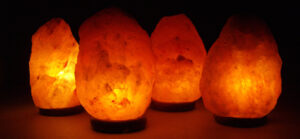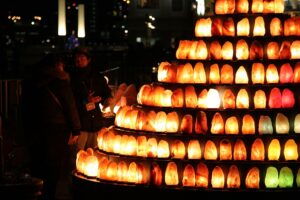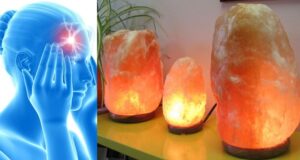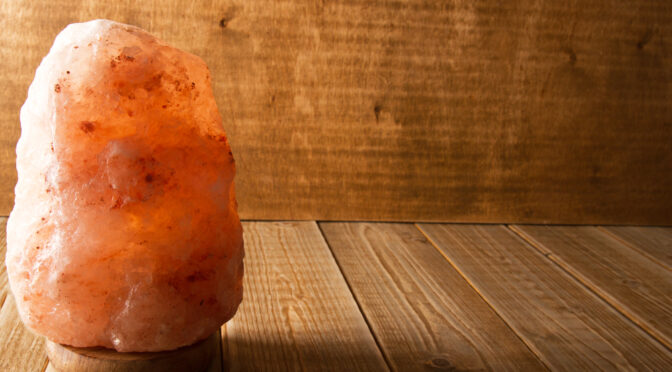Himalayan pink salt is widely regarded for its numerous health benefits. This salt is way better for you than regular old table salt. It contains calcium, iron, magnesium, and potassium too. It truly is the king of salts!
But not only is it good for your health when consumed, it’s good for your health to simply have around too. Chunks of pink salt have been popularized as small lamps that can help people with migraines, allergies, insomnia, some skin conditions, and other disorders.
G. S. Rahi, an assistant professor of Physical Science at Fayetteville State University has concerns about the relationship between ions and human health.
“As all living systems (including human beings) are bioelectric in nature, the electrically charged particles affect the way we feel and act,” says Professor Rahi.
“In natural setting a balance of positive and negative ions contribute to one’s sensations and perceptions. Atmospheric ions can affect health, well-being, efficiency, emotions, and mental attitude of human beings.”
He thinks placing these salt lamps in certain parts of your home help reduce the clutter of unhealthy positive ions. You can also place them all over your home. The results are awesome and almost immediate.
Further, Pierce Howard, PhD thinks negative ions are terrible for our bodies.
“Generally speaking, negative ions increase the flow of oxygen to the brain; resulting in higher alertness, decreased drowsiness, and more mental energy,” says Howard. “They also may protect against germs in the air, resulting in decreased irritation due to inhaling various particles that make you sneeze, cough, or have a throat irritation.”
Of course, not everyone is convinced. Some argue that, because salt does not contain an oxygen atom in its molecule, it can’t do anything to improve air quality or do anything relating to ionization. Salt, made of one sodium and one chloride atom, has a positive and negative charge. They are bound together in an equally weighted cation/anion structure.
If the lamp were to release negative ions, it would have to have a surplus of negative ions. But there is no such surplus in a salt lamp. You can separate the ions in salt but it takes more energy than the heat produced by a light bulb.
There was a test done on these lamps, where popular salt crystal lamp brands were tested using an ion detector. As a control, they took the device outside where it detected naturally-occurring negative ions. In the end, more negative ions were produced by everything outside than the lamp.

“The salt lamp put out such a small level of negative ions that just taking a reading depleted the few negative ions that it did put out, and then the ion detector stopped indicating.
We then had to remove the ion detector from near the salt lamp for a few minutes before we could again measure negative ions near the lamp. We couldn’t tell the exact level of ions.”
So for us, the jury is out. Many report that the lamps can help, and some still argue that they aren’t particularly useful. What do you think? Do these lamps work for you? Have you ever tried one? Are you thinking of getting one?

